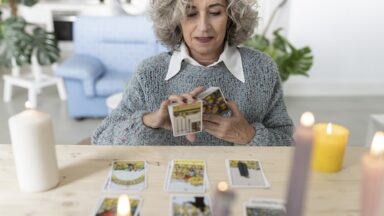The Importance of Cleansing the Soul

Do You Have Soul Sludge?
I spend a lot of time talking about proper food choices and cleaning out the kitchen, but what happens when our bellies are filled with wholesome food, we sleep the recommended 7-9 hours and we include yoga asana (the physical practice) and exercise into our daily lives and we are still off?
What is slowing us down and burning us out? I like to call this soul sludge. This is the hard stuff to face and change. It is what sits stagnate at the bottom of our bellies and our hearts.
Cleaning out the kitchen cabinets is the easy part, cleaning out the junk in our personal trunk is the hard part. Are you ready mentally to face the world and people you have surrounded yourself with and tell them things need to change or it is over? Are you brave enough to do what is best for you and not just what is best for others?
Cleansing the soul doesn’t mean you need to become angry or mean, but rather it means you need to become real, real with yourself and others. When we take the time to self-reflect and determine what we need and where we need to be, we are being honest, brave and ultimately the healthiest we can be.
It is not just about what we eat, it is about what eats at us. Is it a job? Is it a relationship? Is it your friends on social media? What brings you down and what brings you up? When we fill our lives with the positive and start to eliminate the negative, we become stronger, healthier and much more productive. When we drop the dead weight, we have more to give to those who deserve it.
You are not being selfish, you are being the best you can be! When you start to make you the focus, you can love more and give more.
I challenge you to look deep within and be honest. The truth often hurts, but so does living an unfulfilled and unhealthy life. You deserve the best! The journey will be difficult, but the reward will be worth it.
About the Author

Laurel Attanasio is filled with light, love and contagious energy. Through her fun-filled flow classes you will strengthen, lengthen and cleanse your body. She loves motivating her students to breathe fully, work harder and then relax completely. Laurel Attanasio is certified as a 500-hour Advanced Yoga Teacher, a Mat Pilates Teacher and a SUP Yoga Teacher. You will find her teaching classes locally in her hometown of Bethlehem, PA and workshops and retreats throughout the globe. To learn more about Laurel and where she is going, visit www.laurelattanasio.com.
Next Article
Tobacco Ties: Honoring Earth the Lakota Way

Zintkala Waste (pronounced: Wash-tay) was born on a full moon in a tent on the South Dakota Rosebud Reservation in the Upper Cut Meat community. “I grew up spending all my time learning traditional ways with the elders. I was taught about everything Lakota,” he says. With his calm, warm presence, he embodies an archetypal grandfather.
Speaking quietly, he adds that he is a member of the Burnt Thigh Clan of the Rosebud Lakota Tribe, and that one day after he was born, he was given his Indian name, “Zintkala Waste,” meaning “Good Bird” in Lakota.
As a spiritual leader and minister of the Native American Church, he says that one of his duties is to hold sweat lodge ceremonies. “I also teach what I’ve learned over my lifetime. I help people with alcohol and drug problems. Since I will be 76 on May 30, 2018, I am one of the elders of the tribe,” he says.

The video streaming platform exploring Spirituality, and Esoteric Spiritual Traditions
Free Trial

































